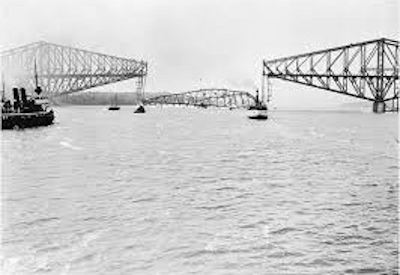Canada 150: Standardization Leadership in Canada

Feb 23, 2017
The Standards Council of Canada (SCC) is delighted to participate in the celebration of Canada’s 150th anniversary of Confederation by looking back at standardization and SCC’s progressive leadership to deliver innovative standardization solutions — and how they have helped to shape Canada’s history.
Modern-day standardization, a concept that often requires consensus for the common good, came about partly because of the need for compatible equipment in war times. In the trenches of Europe during the First World War, Allied forces pooled technical resources such as communication devices and ammunition. These devices were often incompatible, leading to unnecessary costs, injuries and death.
In 1917, Britain requested that Canada form its first standards committee to address these concerns with a made-in-Canada solution that took into account the vastness, diversity and extreme weather conditions of the young nation. Led by Sir John Kennedy, the Canadian Engineering Standards Committee was made up of volunteers who pledged to “introduce order in industrial work” by developing standards on a consensus basis while coordinating with their counterparts in Great Britain, the United States and other Allied countries. In 1919, the group received a charter from the federal government to form the Canadian Engineering Standards Association (CESA).
First Canadian standards published
Wasting no time, CESA issued its first standard for steel railway bridges in 1920. The technology was starting to replace wooden structures in Canada, but a few high-profile failures made the need for standardization crucial. For instance, the Quebec Bridge, which still links Quebec City with Lévis, Quebec, was designed to carry the National Transcontinental Railway over the Saint Lawrence River and was the longest steel cantilever bridge of the world at the time (shown in photo). It collapsed during its construction in August 1907, and then again in September 1916, resulting in the tragic loss of 88 lives.
Innovation lead to standards to improve public health in Canada through milk pasteurization, sewage treatment and water purification. In the early days of electricity, CESA published a collection of electrical standards in 1927 called the Canadian Electrical Code. It is still used today.
By the Second World War, quality management systems and standards for making mechanical parts, communication equipment, weapons and engines became progressively important as new technology emerged, strengthening the case for international standards even more. CESA was renamed the Canadian Standards Association (CSA) in 1944.
Leadership in Canada: establishing the Standards Council of Canada
In 1964, the federal government conducted a comprehensive review of standards activity in Canada. The study identified a number of areas for improvement, including coordination and long-term planning, support from industry and government, and Canadian involvement in international standardization. As a result of this review, the Standards Council of Canada Act received Royal Assent in 1970 and the federal government established the Standards Council of Canada (SCC) to provide strategic direction and leadership for standardization in Canada.
One of the very first standards published in Canada, Tubular Support Members and Associated Footings for Domestic and Commercial Service Masts, was updated in 2013 and is still in use today. In 1972, SCC helped to ensure that Canada held a seat on the International Organization for Standardization (ISO)’s governing council for the first time, and soon after accredited five standards development organizations and published its first information booklet.
A strong voice internationally: Ensuring Canada’s interests are heard
Today, SCC represents Canada’s interests globally as a member of two organizations that develop voluntary international standards: ISO and the International Electrotechnical Commission (IEC). SCC’s membership in these organizations and other regional bodies helps Canada stay connected with the international standards development community by facilitating Canadian participation on hundreds of technical committees at any given time. SCC actively encourages Canadians to get involved in standardization to ensure that Canada is participating in committees that are support our country’s interests.
Find out how you can get involved: https://www.scc.ca/en/standards/committees/get-involved-standardization.





![Guide to the Canadian Electrical Code, Part 1[i], 26th Edition– A Road Map: Section 56](https://electricalindustry.ca/wp-content/uploads/2022/11/Guide-CE-Code-2-768x432.png)




![Guide to the Canadian Electrical Code, Part 1[i], 26th Edition– A Road Map: Section 56](https://electricalindustry.ca/wp-content/uploads/2022/11/Guide-CE-Code-2.png)



